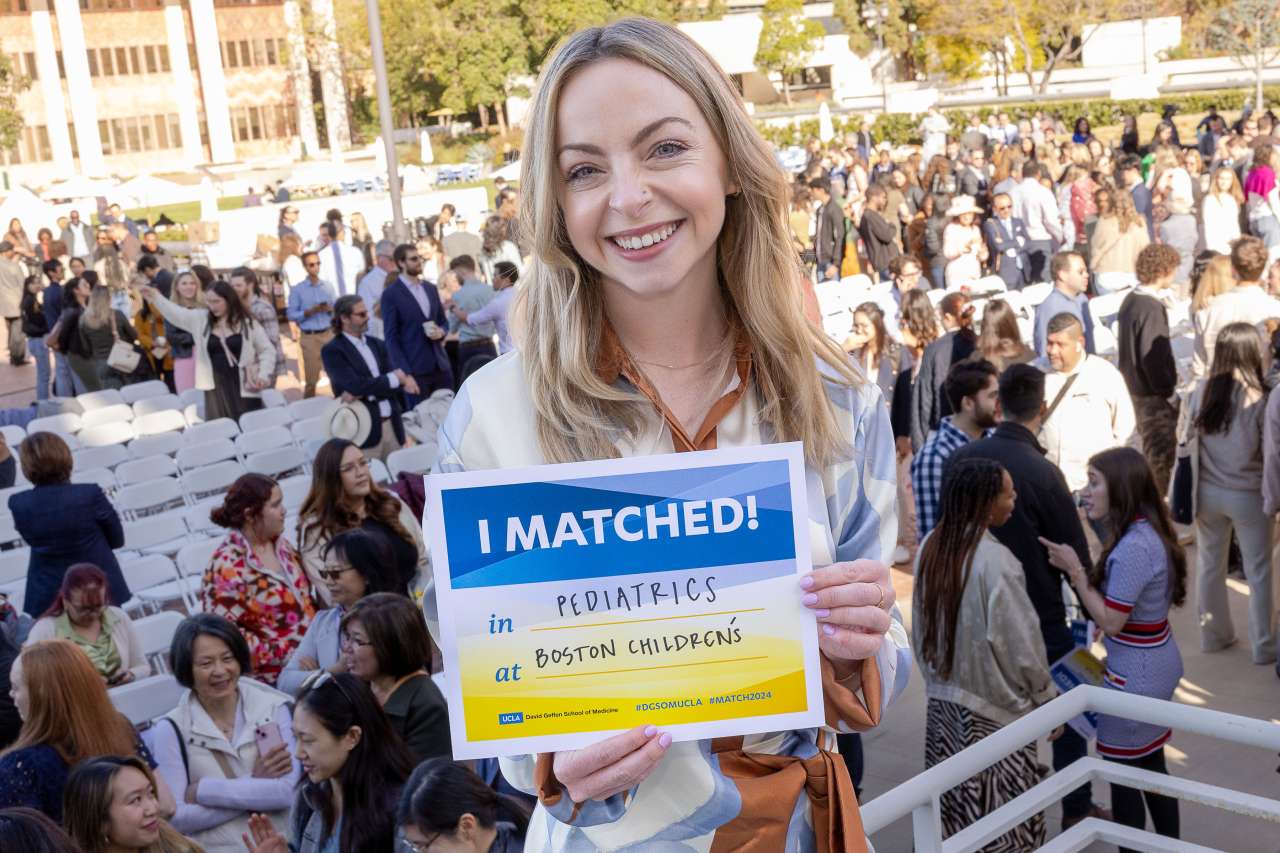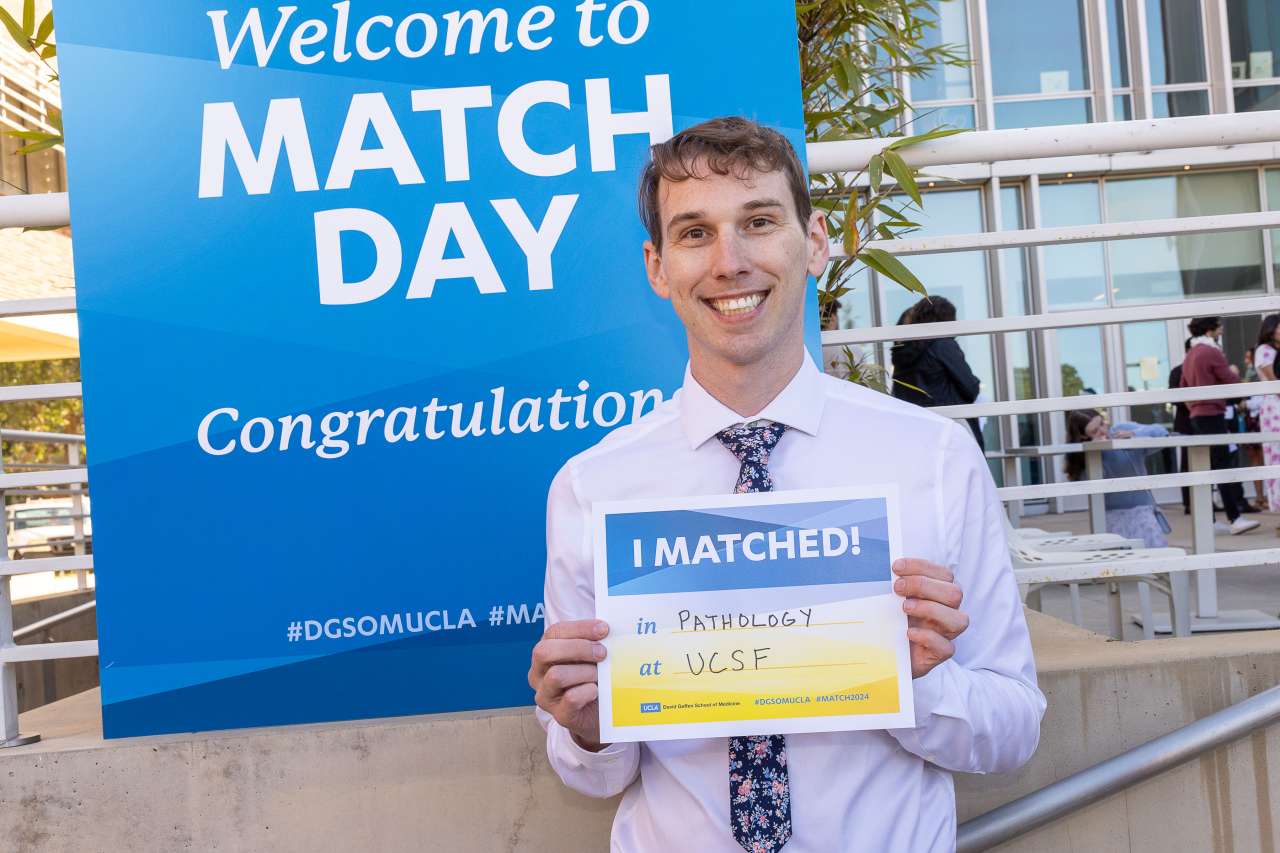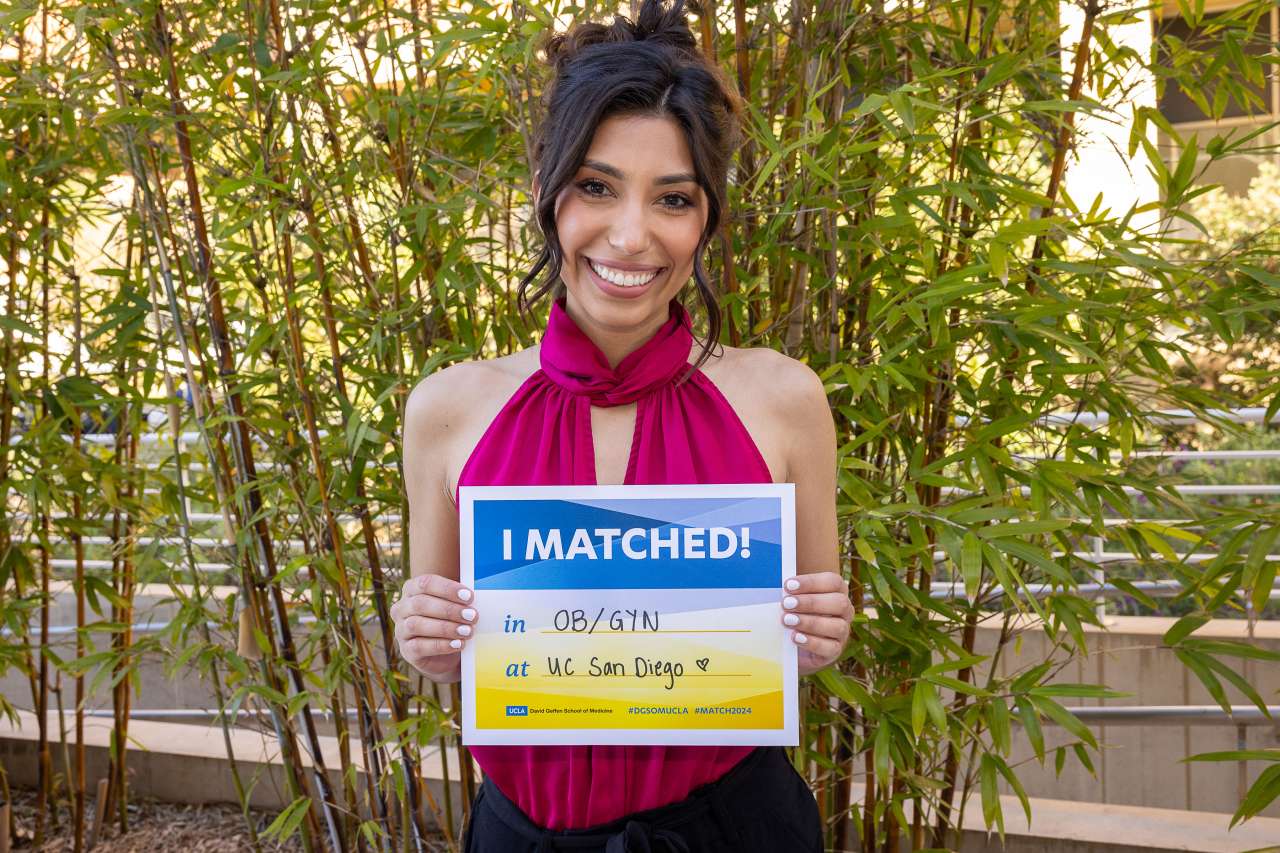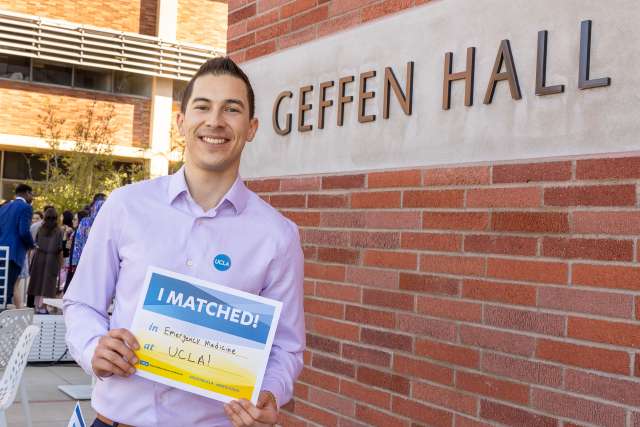On Friday morning, March 15, about 160 students at the David Geffen School of Medicine at UCLA unsealed envelopes to learn where they would be working and living for the next three to seven years.
After years of study, applications and interviews came the auspicious Match Day – when medical students across the country would find out what hospital had accepted them for residency.
Among the DGSOM students, nearly 30% are pursuing surgery and about 23% will pursue internal medicine. Around 70% of students will be training in the west – 37 of them beginning at UCLA in the summer.
While the route to residency can be grueling for anyone, the following students overcame additional barriers:
3-time cancer survivor on path to becoming an oncologist
Alexandra Keir was diagnosed with three different types of cancer – at age 2, 7 and 14. This childhood exposure to clinicians planted a seed to pursue a career in health care. But it was not until she became involved with clinical research and excelled in her upper-division coursework as an undergrad at UCLA, she said, that she believed in her capabilities to become a doctor.
Working with kids and families affected by cancer in the worlds of volunteering and fundraising reaffirmed that decision. Keir has already made her mark in the sarcoma research and clinical setting and would one day like to provide holistic care.

“I hope to serve as a role model for what a positive, happy and healthy life can look like after a devastating diagnosis,” she said.
Keir matched at Boston Children's Hospital for pediatrics.
After a year in a wheelchair, cancer survivor champions for disability inclusion
While Samuel Hulbert was on the road to becoming a neuroscientist, he was diagnosed with testicular cancer. After receiving chemotherapy and undergoing surgeries to preserve his hips, Hulbert had to temporarily use a wheelchair during the final year of his PhD program.

Hulbert's experience with cancer motivated him to switch careers to medicine, and using a wheelchair inspired him to make the medical training setting more inclusive for students with disabilities and chronic diseases. In medical school, he co-founded the DGSOM Disability and Chronic Illness Organization, which pushed for the hiring of a full-time disability services coordinator for the School of Medicine.
As Hulbert transitions to his next step in a pathology residency, he plans to continue his efforts for disabled medical students.
“I think there needs to be a larger conversation about disability and how people who have disabilities can navigate the clinical training environment,” he said.
Hulbert matched at UCSF for pathology.
PRIME-LA
The following students are part of PRIME-LA, a program dedicated to serving underresourced communities by training underrepresented medical students who are passionate about fighting health disparities.
Son of immigrants says mentorship is key to diversifying medicine
From a young age, Rigoberto Perez Hernandez had the important responsibility of serving as translator for his family members’ medical appointments. It became clear from the experience that he wanted to become a doctor, but being the first one in his family to pursue this path it was unclear what steps he needed to take.
Thanks to mentorship throughout high school, he went on to attend Cornell University and was the first person in his family to graduate from college.
Having learned firsthand the power of mentorship, Hernandez is now committed to serving as a role model to underrepresented students. He is a board member of Growing Greatness, an organization that provides mentorship opportunities to underserved youths in Santa Cruz County.
“Mentorship is everything. It is the reason why I am here. Now that I have made it this far in my journey, I only hope to do the same for future generations,” he said.
Hernandez matched at UCLA for emergency medicine.
Immigrant student plans to become OB-GYN
After immigrating from Michoacán, Mexico, to Fresno, California, Leilani Gutierrrez-Palominos recognized the global demand for doctors who understand the needs of underresourced communities.

To help fill the void, she pursued a career in medicine and, with an empathetic lens, focused on working with economically disadvantaged communities. Among many examples, she worked in Nicaragua during the height of the Zika virus outbreak, and later in Mexico with midwives as part of the Refugee Health Alliance.
Gutierrrez-Palominos is looking forward to being an OB-GYN, which she feels will allow her to advocate for patients beyond the clinical setting. She plans to care for pregnant patients both at the U.S.-Mexico border and within the U.S.
“It’s a true privilege being part of the OB-GYN community because you make a difference in someone’s care with the respect and compassion they deserve,” she said.
Guitierrez-Palominos matched at UCSD for OB-GYN.



